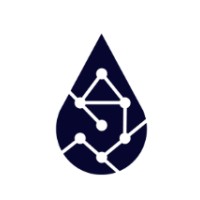The global shift towards data-driven operations is not only about improving compliance and regulatory standards but also about unlocking new opportunities in efficiency, resilience and customer engagement. For utilities, effective data management is no longer optional; it is the backbone of modern water service delivery and long-term sustainability.
Digital Transformation Through Smart Data Governance
The greatest impact for utilities today comes from adopting robust frameworks for data integration and governance across distributed assets. By standardising data from networks of sensors, pumps, treatment facilities and distribution systems, utilities can create holistic operational insights.
A structured approach to data governance ensures that the information powering AI-driven leak detection, predictive maintenance and digital twins is reliable and interoperable. The result is not only higher service reliability but also measurable reductions in operational costs and faster response times to service disruptions. This makes data management a decisive factor for utilities seeking to enhance resilience in the face of ageing infrastructure and climate-driven water stress.
Operational Excellence Through Automation and Optimisation
Data-driven automation represents another major area of opportunity. Advanced monitoring systems, when linked with intelligent data analytics, enable utilities to adjust pumping, treatment and storage dynamically in response to the demand fluctuations. This optimisation of core utility operations reduces energy consumption, prevents costly overcapacity and extends asset life.
Similarly, the deployment of AI-powered decision support systems enables utilities to prioritise maintenance activities, anticipate risks and optimise chemical dosing in treatment plants. These tools not only reduce costs but also improve water quality standards for consumers. The economic potential is significant; market analysis estimate that advanced data management technologies could unlock industry-wide value of billions of U.S. dollars annually through efficiency gains and reduced capital expenditure.
Customer-Centric Utilities Through Smart Platforms
Equally transformative is the role of data management in customer-facing operations. Smart metering platforms integrated with advanced analytics enable consumers to monitor usage, identify leaks, and reduce bills. Utilities, in turn, gain deeper insights into the demand patterns, allowing them to create more accurate pricing models and conservation initiatives.
Modern building management systems extend these advantages into the commercial and industrial sector, where digital controls for water flow, consumption and treatment can achieve reductions of up to 25% to 40% in water use. By integrating smart technologies into customer engagement strategies, utilities not only cut costs but also build stronger, trust-based relationships with stakeholders.
As utilities worldwide address the twin challenges of climate resilience and infrastructure modernisation, the ability to govern and harness data effectively will define industry leadership. At European Smart Water Utilities 2026, global leaders, technology providers, and service innovators will showcase how structured data management is supporting smarter, more responsive, and more sustainable utilities. For stakeholders across the sector, this is both a call to action and a significant growth opportunity.













